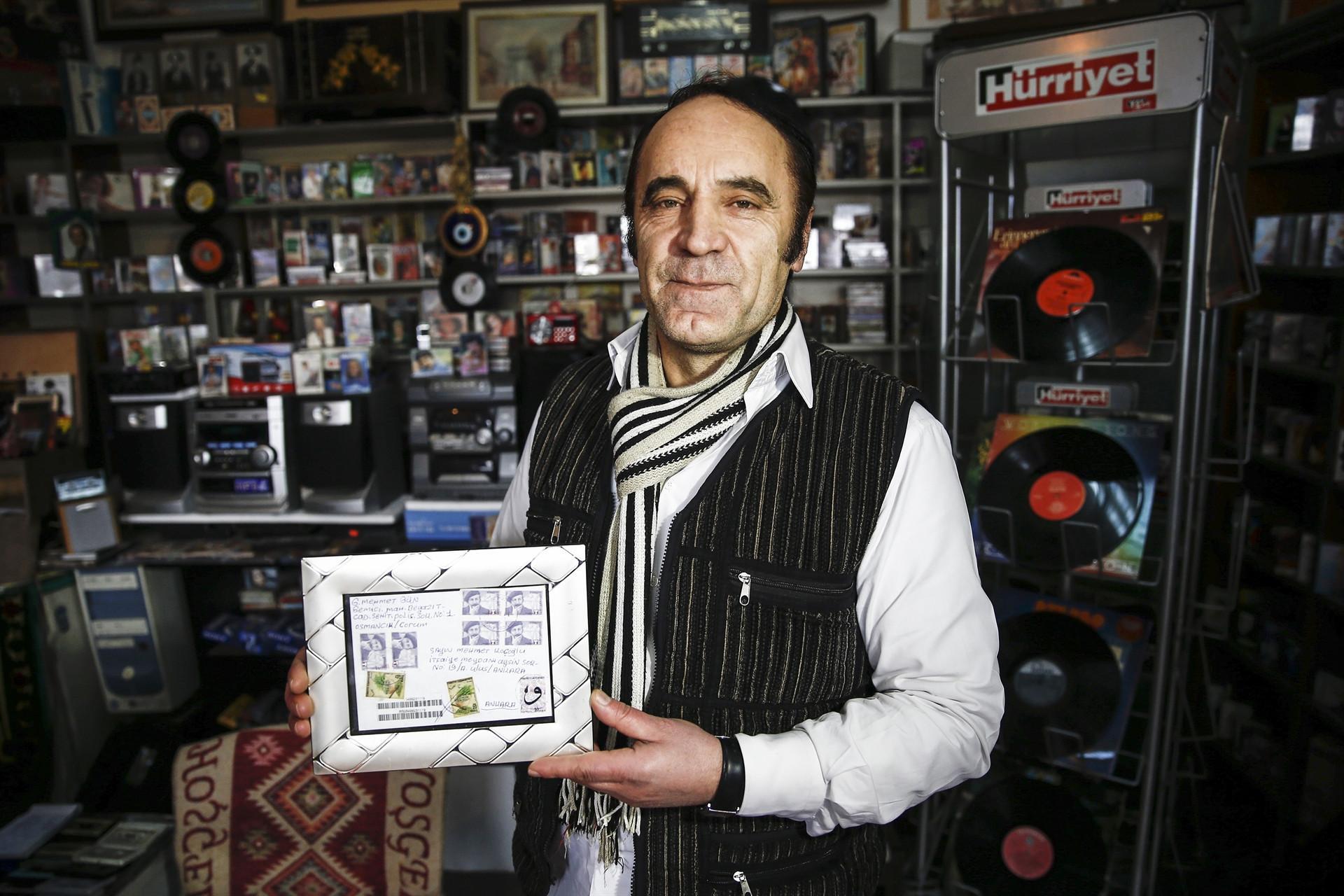
Mehmet Koçoğlu sells thousands of cassette tapes in his shop in Ankara’s Ulus district, shedding light on the history Turkish music spanning decades.
With technological developments, cassette tapes in the music market were dethroned by CDs, flash memories, memory cards, telephones and the internet. Selling cassette tapes in his seven-square-meter shop, Koçoğlu tries to keep the vanquished cassette tape culture alive.
Having an emotional bond with them, Koçoğlu sells more than 150,000 cassette tapes in the shop and sees it as a cultural service.
He’s had regular customers for 25 years from various Turkish cities and has cassette tapes of almost all kinds of music. In addition to the cassettes, Koçoğlu’s shop also offers products such as record plates, tapes, radios and etc. He gives importance to the content of the tapes more than their number.
Speaking to state-run Anadolu Agency, Koçoğlu said he started as a street vendor in the 1990’s and still continued in the shop.
He said he used to go to the cassette sellers in Ulus in the past, adding: “The sellers used to dismiss us for overcrowding their shops. Then I started collecting cassette tapes. As I had too many, I started selling them. I was a street vendor at first and then I opened my own store.”

Speaking about the cassettes, Koçoğlu said they were the sturdiest materials used since 1960s. He stressed that the popularity of CDs and flash memories deteriorated quickly, but cassettes survived.
“There’s no such thing on the cassette. Even if it breaks, you open it and fix it. You can do it again. I really care about the cassette. Cassettes are the most widely used and healthiest products in history. The cassette is very easy to store and very durable. Also, the sound from the cassette is very different from the digital media. It has a natural, classical sound. In other words, the cassette is hormone-free. It is a more laborious but more enduring thing. That’s why I care about the tape and I love this job,” Koçoğlu said.

Before starting this job, he was asked what he would do with cassettes as their popularity had died out, but he insisted they would not cease to exist.
“The cassettes are marketable, too. I’ve had a customer for 25 years. He buys cassettes only and still has his 20-year-old cassettes.”
Customers from across Anatolia
Koçoğlu said that he currently had more than 150,000 cassettes in his shop.

“I don’t sell most of these. They are all from my collection. For example, İbrahim Tatlıses released 60 cassette tapes and I have all of them; Zeki Müren released 50 cassettes and I have all of them. If we have two, we sell one of these two. But if we have one, we don’t sell it. I have a very wide collection. Because we have so many cassettes, people can find what they want. For instance, a person from Çorum has sent me a list, a special order, and I sent him the cassettes on the list. I have customers from all parts of Anatolia. Most sellers left this job but I didn’t. I don’t earn very well but what I make is enough to look after my family,” he said.
Stating that he was interested in everything about music, Koçoğlu said, “I am working on everything that plays music and I also have a painting collection but I don’t sell them. This is not done for money only.”
“A person came here and asked for a cassette. He had looked for it for 15 years. When I said I had it, he fainted. Because he did not think that he could find it. Then I gifted him the cassette. He became very happy after 15 years,” he recalled.